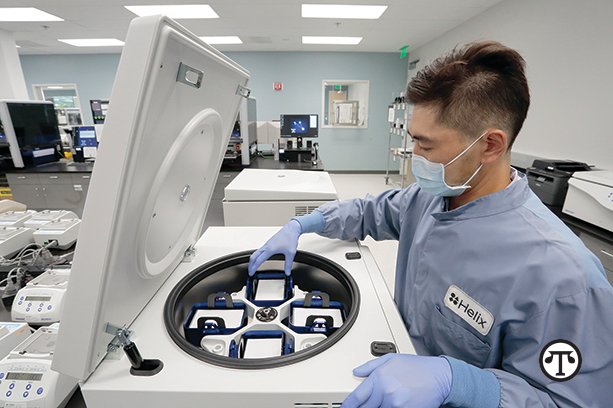 Post Classifieds
Post Classifieds
COVID Testing In Schools: What You Should Know

(NAPSI)—Enabling K-12 schools to reopen for in-person learning is a high priority for parents, communities and governments. In fact, President Biden’s National Strategy for the COVID-19 Response and Pandemic Preparedness was launched to fund COVID testing for teachers, staff and students in an effort to create a safer return-to-school environment.
Getting kids back to in-person learning will mean giving working parents a break, letting parents return to full-time work, reducing the expense of tutors or childcare and providing a near-normal learning experience.
Nevertheless, concerns linger over COVID in the classroom and the possibility of children bringing the virus home. School districts have looked at options for student testing but at the top of many lists is pooled testing. Here are some common questions and answers about that:
What is pooled COVID testing?
Pooled COVID-19 testing combines swabs from consenting individuals in a classroom and runs them as a single test. This can significantly increase testing capacity and lower costs. School personnel are trained to operate and monitor on-site sample collection, usually done weekly. In the event of a positive pool, the entire pool is quarantined and individually retested. But students who test negative can return to school immediately.
Does my child need to participate?
Participation is optional but according to district supervisors, most parents participate because regular, proactive testing can offer peace of mind. Knowing your child is in a COVID-free pool can make sending them to in-person learning less stressful. Proactive pooled testing alerts parents if a pool tests positive—which can be faster than finding out only after a child starts showing symptoms. It also means that parents know if a child tests positive, even if they are asymptomatic.
Can I trust the results?
Yes, in many states, pooled testing is already being administered by trained school personnel. Swabs are tested by Helix, a CLIA-certified lab, identified as having one of the most sensitive PCR tests on the market in an independent study conducted by the FDA.
Does testing my kids at school cost me anything?
No, having your kids tested for COVID at school on an ongoing basis doesn’t cost families anything. It provides a convenient way to protect all family members and creates a safer in-person learning environment.
How can I learn more?
For further information, contact your school and ask about pooled COVID-19 testing and visit www.helix.com.
On the Net:North American Precis Syndicate, Inc.(NAPSI)
Get Top Stories Delivered Weekly
Recent theclockonline News Articles
Discuss This Article
MOST POPULAR THECLOCKONLINE

Campton Elementary School 8th Grade Silent Auction & Spaghetti Dinner By Rebecca Tgibedes

Will You? By Isabelle Elsasser

Summer in the Sunflowers By Emily Holleran

Student Spotlight: Sabrina Siegel By Justine Walsh
GET TOP STORIES DELIVERED WEEKLY
FOLLOW OUR NEWSPAPER
LATEST THECLOCKONLINE NEWS
RECENT THECLOCKONLINE CLASSIFIEDS
OUTSIDE THE LINES
- There’s More To Vision Health Than Meets the Eye
- Medications and Wellness Essentials Delivered to Your...
- Understanding Spam—And How To Stop It
- 1 in 5 Vehicles on the Road Has an Open Recall—Yours C...
- A Difficult Diagnosis Sparks Hope and Support for...
- Fall For Improved Vehicle Protection
- Six Ways To Save Money This Holiday Season
- BigFuture Resources Help Students Discover College,...
- Anheuser-Busch Celebrates American Growers on National...
- What You Should Know About Healthy Aging
FROM AROUND THE WEB
- Trump's Flawed Tariff Proposal
- How Artificial Intelligence Intersects with Energy
- 6 Reasons Fiberglass is the Pool Material of Choice for...
- BookTrib’s Bites: Four Unforgettable Reads
- Navigating “Gramnesia” This Holiday Season
- BookTrib’s Bites: Dive Into These Four Exciting Fall Reads
- Easy Monster Margarita is No Trick, All Treat
- Help Marine Toys for Tots Deliver Hope to Children in...
- 5 Tips to Pick the Right Dental Plan
- BookTrib’s Bites: Four Fascinating Fall Reads







